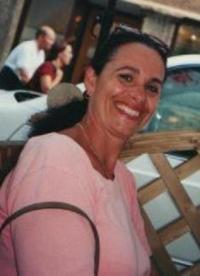I made my own opinion

Stáhnout obrázek
Maria Müllerová Karastathi was born in Czechoslovakia in 1958. Her mother and father were both partisans who had fought in the Greek civil war and had been forced to flee their homeland. However, it was in Prague that they first met, and it was there that they settled and started a family. Her father wanted Maria to become a doctor, but she herself longed for the life of a ballet dancer. She went to Greece for the first time in 1975. Since then she has been visitingthere regularly. Her parents were very politically active and were respected throughout the Greek community in Czechoslovakia. Maria and her brother were not interested in politics, however. Her parents brought her up with the conviction that she would one day return to Greece and that she must marry a Greek. She had a very heavy workload - dancing in the theatre, filming television fairy tales and concert programmes. She did consider moving to Greece, but finally decided against it because of the limited possibilities for employment in her profession.
